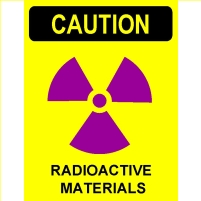Spent Nuclear Fuel a Bigger Threat in U.S. than in Japan
Friday, May 27, 2011

Spent nuclear fuel rods, which have garnered considerable attention since the nuclear plant crisis in Japan, represent an even larger threat in the United States, home of the world’s largest collection of radioactive refuse.
The Institute for Policy Studies (IPS) says that American nuclear reactors have generated about 65,000 metric tons of spent fuel, of which 75% is stored in pools. Storage of the waste in this manner is considered unsafe and vulnerable to attacks and natural disasters, as evidenced by the aftereffects of the earthquake and tsunami that struck Japan.
“Spent fuel storage pools are often housed in buildings no more secure than a car dealership,” according to an IPS report. “Instead, these fuel rods should be safely stored in dry, hardened, and sealed storage casks.”
Sealed in metal tubing thinner than a credit card, the rods, if exposed to air, can give off enough radiation to kill a person in a matter of seconds.
The nuclear waste is spread all around the United States. In Southern California, the spent fuel at the Diablo Canyon nuclear reactors have nearly 2.7 times more radioactivity than the combined total in the spent fuel pools at the four troubled Fukushima reactors. The two Indian Point nuclear reactors 25 miles from New York City have triple the radioactivity of the Fukushima spent fuel pools.
-Noel Brinkerhoff
Spent Nuclear Fuel Rods and Storage Pools: A Deadly and Unnecessary Risk in the United States (Institute for Policy Studies) (pdf)
Spent Nuclear Fuel Pools in the U.S.: Reducing the Deadly Risks of Storage (Institute for Policy Studies) (pdf)
- Top Stories
- Unusual News
- Where is the Money Going?
- Controversies
- U.S. and the World
- Appointments and Resignations
- Latest News
- Musk and Trump Fire Members of Congress
- Trump Calls for Violent Street Demonstrations Against Himself
- Trump Changes Name of Republican Party
- The 2024 Election By the Numbers
- Bashar al-Assad—The Fall of a Rabid AntiSemite






Comments